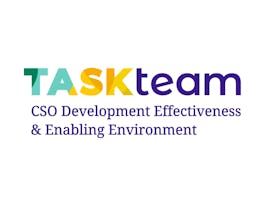This course presents strategies for scientists to use when engaging a variety of audiences with scientific information. Students will learn to communicate their knowledge through both textual and visual strategies, as well as practice document preparation using appropriate formatting, style, and graphics. Written assignments, discussion questions, and communication exercises will provide students with a better understanding of the relationship between scientists and diverse audiences, whether in the workplace, laboratory, or other environments.



Expérience recommandée
Compétences que vous acquerrez
- Catégorie : Information Visualization (INFOVIS)
- Catégorie : Data Science
- Catégorie : Scientific Writing
- Catégorie : Visual Communication
- Catégorie : Data Visualization
Détails à connaître

Ajouter à votre profil LinkedIn
36 devoirs
Découvrez comment les employés des entreprises prestigieuses maîtrisent des compétences recherchées


Obtenez un certificat professionnel
Ajoutez cette qualification à votre profil LinkedIn ou à votre CV
Partagez-le sur les réseaux sociaux et dans votre évaluation de performance

Il y a 9 modules dans ce cours
Welcome to Public Engagement for Scientists! Module 1 delves into the multifaceted role of scientists in society, highlighting the challenges and responsibilities in communicating scientific knowledge. It aims to equip students with a nuanced understanding of what constitutes scientific expertise, the interplay between science and the public sphere, and the inherent communication challenges faced by scientists today.
Inclus
8 vidéos6 lectures4 devoirs1 sujet de discussion
This module is designed to enhance students' skills in tailoring written communication effectively for diverse audiences and purposes. It focuses on the art of revising and editing texts to match the audience's vocabulary level, ensuring conciseness and precision, and utilizing visual elements like typesetting and color for enhanced comprehension. The course combines theoretical knowledge with practical exercises, enabling students to master the intricacies of impactful written communication.
Inclus
6 vidéos4 lectures5 devoirs
This module dives into the skills required for effective data management and visualization. It focuses on the foundational techniques of cleaning and structuring both quantitative and qualitative data, understanding and selecting appropriate types of data visualizations for different rhetorical purposes, and crafting meaningful captions, legends, titles, and labels to enhance the interpretability and impact of data presentations.
Inclus
7 vidéos6 lectures4 devoirs1 laboratoire non noté
This module is designed to provide students with an in-depth understanding of the interplay between human visual perception and data visualization, alongside the ethical considerations inherent in the field. It covers the psychological and physiological aspects of how the human eye processes visual information, particularly in the context of data presentation. Additionally, the module delves into the ethical dimensions of data visualization, highlighting potential pitfalls and the responsibilities of data communicators in representing information truthfully and responsibly. Students will learn to critically analyze visual data presentations, both in terms of how effectively they convey information and their adherence to ethical standards.
Inclus
7 vidéos4 lectures3 devoirs
This module is tailored to provide students with a comprehensive understanding of the objectives and expectations within the research community. It aims to demystify the purposes and methodologies behind key forms of scientific communication, namely research papers and technical reports. Students will explore the goals driving academic research, delve into the structure and function of research papers, and understand how these papers serve as critical tools for communicating complex information. The module also covers technical reports, explaining their purpose, structure, and how they differ from research papers in conveying detailed information. Through this module, students will develop a clearer perspective on the nuances of scientific communication and its role in advancing knowledge in the research community.
Inclus
10 vidéos5 lectures4 devoirs
This module focuses on the critical aspects of communication within a professional scientific setting. It is designed to equip students with the skills necessary to communicate effectively with peers, emphasizing the importance of concision and precision in delivering clear and impactful messages. The module delves into the key rhetorical features of internal documentation, illustrating how to effectively convey complex information in a manner that is easily comprehensible to team members. Additionally, students will learn the art of crafting effective messages for peer-to-peer communication, a vital skill for successful collaboration and project management.
Inclus
8 vidéos5 lectures6 devoirs
This module is crafted to enhance students' understanding and skills in tailoring communication effectively based on audience needs. It emphasizes the strategic selection and reframing of information to ensure clarity, relevance, and engagement for various audiences. Students will learn how to identify and analyze the specific needs and expectations of their audience, guiding their decisions on what information to include and how to present it. The module also covers techniques for adjusting the complexity of communication, known as editing up or down, to suit the audience's level of understanding and interest.
Inclus
8 vidéos5 lectures4 devoirs
This module is designed to equip students with a comprehensive understanding of the multiple factors that influence public opinion and the essentials of constructing a persuasive public argument. It begins by exploring the various elements that shape public opinion, including cultural, social, political, and psychological factors. Students will then delve into the fundamentals of building a strong public argument, learning how to develop a logical structure, use rhetorical techniques, and engage the audience effectively. A key focus of the module is on the strategic use of data in supporting arguments, teaching students how to integrate statistical evidence to enhance persuasiveness and credibility. Additionally, the course examines the impact of document design on argument presentation, including the use of layout, typography, and visual elements to reinforce the message and facilitate comprehension.
Inclus
9 vidéos6 lectures5 devoirs
This module contains the summative course assessment that has been designed to evaluate your understanding of the course material and assess your ability to apply the knowledge you have acquired throughout the course.
Inclus
1 devoir
Instructeur

Offert par
Recommandé si vous êtes intéressé(e) par Data Analysis

Erasmus University Rotterdam

Johns Hopkins University

Macquarie University

University of Michigan
Préparer un diplôme
Ce site cours fait partie du (des) programme(s) diplômant(s) suivant(s) proposé(s) par Illinois Tech. Si vous êtes admis et que vous vous inscrivez, les cours que vous avez suivis peuvent compter pour l'apprentissage de votre diplôme et vos progrès peuvent être transférés avec vous.¹
Pour quelles raisons les étudiants sur Coursera nous choisissent-ils pour leur carrière ?





Ouvrez de nouvelles portes avec Coursera Plus
Accès illimité à 10,000+ cours de niveau international, projets pratiques et programmes de certification prêts à l'emploi - tous inclus dans votre abonnement.
Faites progresser votre carrière avec un diplôme en ligne
Obtenez un diplôme auprès d’universités de renommée mondiale - 100 % en ligne
Rejoignez plus de 3 400 entreprises mondiales qui ont choisi Coursera pour les affaires
Améliorez les compétences de vos employés pour exceller dans l’économie numérique
Foire Aux Questions
Access to lectures and assignments depends on your type of enrollment. If you take a course in audit mode, you will be able to see most course materials for free. To access graded assignments and to earn a Certificate, you will need to purchase the Certificate experience, during or after your audit. If you don't see the audit option:
The course may not offer an audit option. You can try a Free Trial instead, or apply for Financial Aid.
The course may offer 'Full Course, No Certificate' instead. This option lets you see all course materials, submit required assessments, and get a final grade. This also means that you will not be able to purchase a Certificate experience.
When you purchase a Certificate you get access to all course materials, including graded assignments. Upon completing the course, your electronic Certificate will be added to your Accomplishments page - from there, you can print your Certificate or add it to your LinkedIn profile. If you only want to read and view the course content, you can audit the course for free.
You will be eligible for a full refund until two weeks after your payment date, or (for courses that have just launched) until two weeks after the first session of the course begins, whichever is later. You cannot receive a refund once you’ve earned a Course Certificate, even if you complete the course within the two-week refund period. See our full refund policy.


